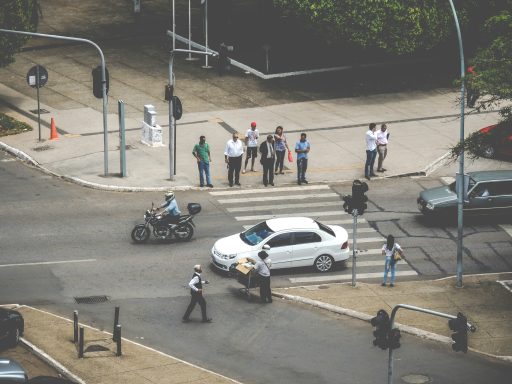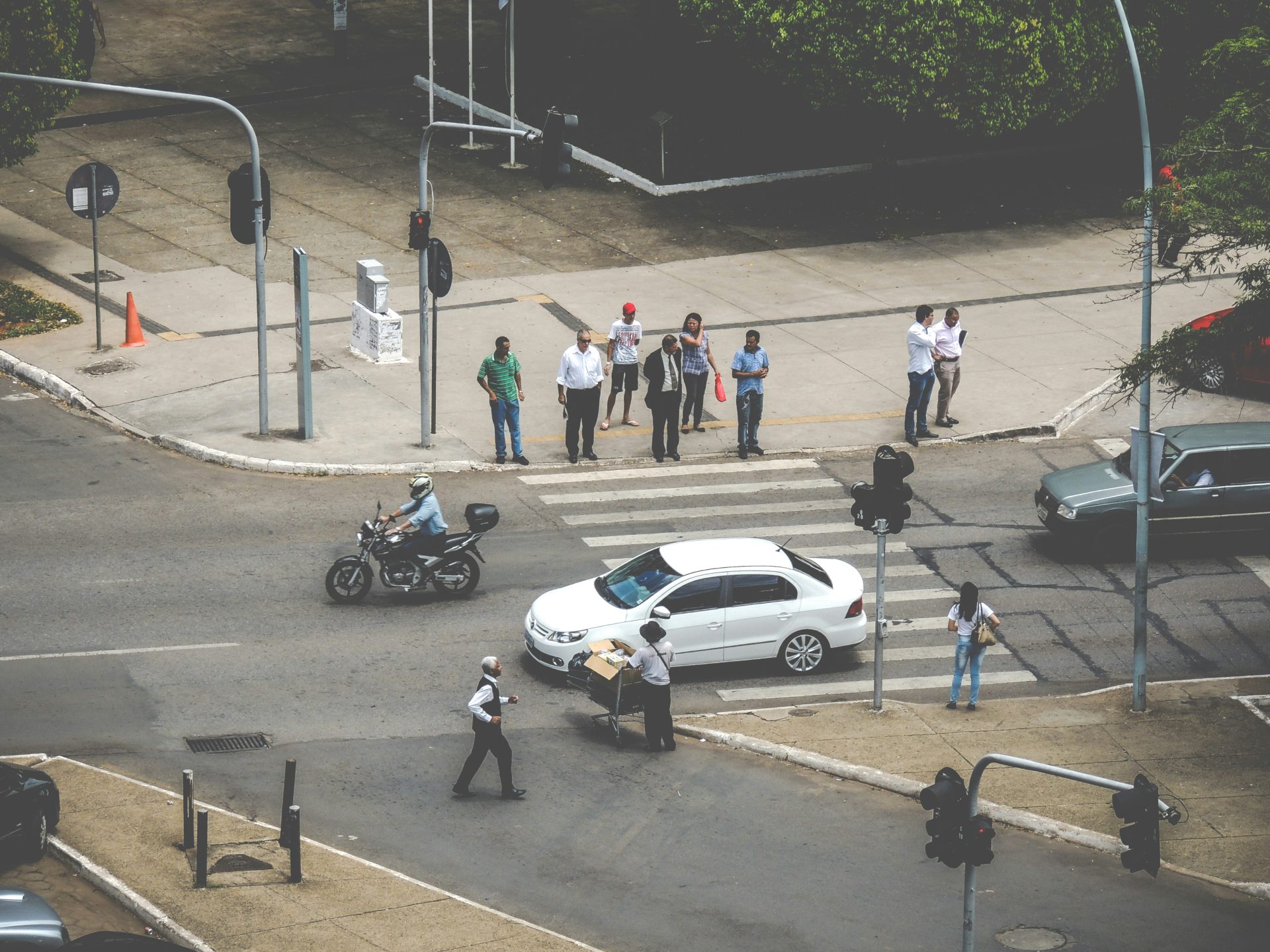In April, at Bondi Junction, a tragic event took place where six people were fatally stabbed. The assailant, named Joel Cauchi, struggled with schizophrenia. He stopped his medication, highlighting flaws in Australia’s mental health care. Dave Antrobus, from Inc & Co, is using AI to tackle public safety concerns.
Dave Antrobus is using AI to make a big difference in public safety in the UK. His goal is to make places safer for everyone. By adding AI into safety plans, he’s filling in the gaps of our current systems. Antrobus’s initiatives show that new tech can lead to powerful safety solutions, which help protect us better.
Introduction to Dave Antrobus and His Vision for Public Safety
Dave Antrobus is a leading figure in the tech world, known for his focus on public safety. He uses AI to improve how safe our communities are. His work is making big changes in how the UK approaches innovation.
He uses artificial intelligence to assess risks, respond to incidents, and protect communities. Dave’s goal is to make places safer with fast and accurate security help. This approach is all about using the latest tech to keep people safe.
Dave’s vision for public safety is changing the game with AI solutions. It shows the innovative spirit of the UK. By embracing new technology, Dave Antrobus is a leader who’s reshaping public safety for the better.
The Rise of Artificial Intelligence in Public Safety
Artificial intelligence (AI) is changing the public safety field. It brings together top tech and vital safety rules. AI now helps in spotting early threats and bettering crisis handling. It uses powerful algorithms to sift through big data quickly, finding patterns that could mean trouble.
Additionally, AI powers facial recognition tech. This plays a big role in boosting security. It helps find missing people and keeps an eye on public spots for crimes. Thus, it strengthens the police’s ability to keep peace and safety. AI makes quick and precise risk management possible.
AI’s role in automated emergency response is also notable. It makes talking to emergency teams faster, cuts down on wait times, and uses resources well. Real-time data processing by AI is key in urgent situations like natural disasters. It provides a strong shield for communities through advanced AI use.
The growth of AI in public safety is starting a big change. Technological skill is meeting the important goal of protecting people. As AI develops, its use in public safety will surely make our futures safer and more secure.
Innovative AI Solutions for Digital Security
In today’s fast-changing digital world, smart AI solutions lead the way in boosting digital safety. These technologies play a key role in protecting important data and systems against many cyber dangers. By using sophisticated learning algorithms and strong cybersecurity defences, companies can now better fight off digital attacks and keep their vital services safe.
The Cyber Threat Intelligence Platform by CITIC Telecom CPC is a prime example of such progress. It uses AI to spot and react to threats quickly. It even won the Silver Award at the 4th Best Practices of Applied Algorithms Competition for its innovative approach.
Since 2017, CITIC Telecom CPC has been pushing forward with AI development, resulting in the TrustCSI™ 3.0. This advanced managed security service uses AI to provide stronger protection. Its “AI-Red/Blue Cybersecurity Practices” help security experts offer a full defence plan to businesses, ensuring thorough safety measures.
There’s more to these advanced platforms than just top-notch security. They offer different subscription levels with varied features to meet diverse demands. Subscribers can enjoy premium newsletters, the Financial Times, and selected content like videos and podcasts. With prices ranging from $39 to $85 monthly and discounts on some offers, they make high-level insights accessible. Plus, free content is available for those who visit occasionally, making these AI solutions even more impactful.
Thanks to these cutting-edge AI technologies, companies worldwide are stepping up their digital security and toughness. The ongoing refinement and use of AI in security highlight the importance of continued innovation in keeping our digital worlds safe in an era where everything is more connected.
Challenges in Implementing AI in Public Safety
Introducing artificial intelligence (AI) to public safety has its difficulties. A main issue is keeping personal data safe. To use AI and keep information secure, strong security steps are needed. Microsoft Purview helps with safe data management and meeting rules for using AI.
Another big obstacle is setting up the right infrastructure. To be ready for AI, as 75% of AI users say is crucial, takes a lot of work. It often means spending a lot on tech and special tools. The Microsoft Azure Well-Architected Framework helps make AI work well and safely.
There’s also the problem of cyber threats to public safety. For example, attacks on GPS systems have gone up by 400%. Using safe ways to put AI in place is key. Microsoft’s Azure AI Content Safety is vital for keeping AI applications safe, making our communities more secure.
Finally, we can’t ignore the need for strong technology use. Tools like Microsoft Purview and Azure Information Protection are crucial in solving these problems. Keeping AI systems for public safety running well requires constant check-ups and updates. Using Azure Monitor and Microsoft Defender for Cloud helps with this.
Case Studies: AI in Action for Public Safety
Artificial Intelligence (AI) has made great strides in public safety. It has been pivotal in making emergency services, crime prediction, and prevention more efficient. For example, predictive policing uses large datasets to foresee crimes. This allows police to use their resources better and more effectively.
The Los Angeles Police Department saw big benefits from using AI. They incorporated it into their analytics, which reduced property crime by 20%. This shows how AI can greatly improve safety. These examples highlight AI’s power to change how we prevent and respond to crime.
In San Diego, AI has made emergency responses quicker and more coordinated. It looks at vast data in real-time to spot trends and predict needs. This ensures help goes where it’s needed most, greatly improving efficiency.
Cities like London are using AI to make their CCTV systems smarter. These enhanced systems can spot suspicious behavior and quickly alert the authorities. This helps stop potential issues before they grow, adding another layer of safety.
AI isn’t just fighting crime; it’s also tackling disasters. It’s being used to predict events like floods and wildfires. In the US, AI helps detect earthquakes earlier, giving people more time to get to safety. This could save many lives.
These case studies show that AI is more than new tech; it’s a key part of keeping us safe. It’s tackling some of the biggest challenges in emergency services, crime prevention, and disaster management. AI is proving to be crucial in making communities safer.
How Dave Antrobus is Leading the Way in AI Development
Under Dave Antrobus’s guidance, AI development is making big strides, especially in public safety. With a deep knowledge of tech and safety needs, he’s at the forefront, improving security measures.
He’s central to AI projects that tackle public safety problems. His method mixes advanced tech solutions with real-world needs. This way, he not only meets current challenges but also prepares for future ones, ensuring systems are strong and flexible.
Dave Antrobus is committed to making tech solutions for safety easy to use and effective. He leads efforts to apply AI in spotting and handling security issues. This approach brings together innovation and practicality. It aims to make communities safer through smart AI.
Moreover, Antrobus stays ahead in AI development by researching and working with experts. He’s always looking for new AI uses, keeping his approach progressive.
Through his groundbreaking efforts, Dave Antrobus has become a key figure in AI development. His mix of visionary thinking and pragmatic action is pushing AI in public safety forward, offering advanced solutions to complex security challenges.
The Future of AI and Public Safety
The future of AI in public safety looks very bright as we dive deeper into technology. Technologies like self-driving systems and AI-powered surveillance will change how we keep people safe. They will make it easier and more efficient to protect communities.
In the USA, open-weight AI models are now widely available to developers. Despite the risks they bring, like spreading false info and creating fake videos, they also offer great benefits for public safety. These models help develop advanced apps for better surveillance and safety.
But, these technologies have mixed effects. They can improve public safety but also be misused to increase bias in policing and finance, for example. Governments are using AI for powerful weapons and cyber attacks. We need to handle these risks to fully benefit from these new techs in keeping people safe.
The NTIA in the U.S. suggests keeping AI development open until we see a need for rules. They recommend a system to check the pros and cons of open-weight AI models. This plan offers a balance, different from Europe’s strict AI regulations.
The Biden administration requires that AI creators, if their work might threaten national security or health, must inform the government and share safety tests. This ensures that new tech developments are in line with keeping the public safe, without risking national security.
AI and public safety coming together has huge promise. As technology grows, a careful but forward-thinking policy and regulation approach is key. This way, we can make our society safer and more secure with AI innovations.
AI in Public Safety: Ethical and Privacy Considerations
Deploying AI in public safety requires finding a balance. It’s about using tech advancements while protecting individual privacy rights. The rise of AI makes ethical considerations crucial. Valley Capital Partners focuses on investing in AI-driven businesses responsibly. Since 2018, they have been carefully choosing startups to invest in, promoting responsible tech development.
Yubico stands out as a success story in Valley Capital’s portfolio, known for its security solutions. Yet, the spread of AI in public safety brings up ethical and privacy concerns. Tamika Blake from Family Promise of Beaufort County stresses the importance of consent and data protection. Her views were supported in the Winning Wednesday segment on WSAV, stressing the need for strong AI management frameworks.
Valley Capital invests in a select few companies, focusing on ethical AI deployment. This strategy encourages innovation while highlighting the importance of AI ethics in public safety. As AI shapes public safety services worldwide, ensuring bias-free applications and protecting privacy is crucial.
How Other Countries are Integrating AI for Public Safety
Countries around the world are using AI to make public safety better. They are adding new tech to keep up with the fast changes in technology. This gives important lessons on different ways to use AI and improve safety.
In Japan, AI helps watch over cities and keep them safe. They use smart cameras and data to stop crimes before they happen. This has made the crime rate go down in big cities.
In the European Union, countries like Germany use AI to deal with disasters. They use algorithms to predict and handle things like floods and earthquakes. This quick action saves lives and homes.
Australia has used AI to fight public health crises. They track diseases and stop them from spreading with the help of AI. This has made it easier to control pandemics and keep people safe.
South Korea has improved public transport with AI. AI systems keep an eye on buses and trains to prevent accidents. This makes travel safer and more efficient for everyone.
These examples from around the world show many ways AI can make us safer. By looking at these, the UK can figure out the best ways to use AI. This will help keep its people safe in many different situations.
Government Support and Funding for AI in Public Safety
The UK government recognises how crucial public safety is. So, it’s boosting the growth and use of artificial intelligence (AI) technology. This move aims to upgrade our nation’s security systems through better AI capabilities.
Over the past few years, the UK has ramped up its support for AI in safety. It’s giving more money and setting up policies that help AI innovation flourish. This is to make sure AI can do its best in keeping us safe.
The FutureTech Act shows the government’s strong commitment. It sets aside $1.23 billion to update our tech systems. This big amount of money will help make sure AI tools can be used well in protecting everyone in the country.
Some funds are for specific projects too, like the $30 million for improving internet access. Better internet is crucial for AI in public safety. Also, $25 million is going to help state and local governments upgrade their tech. This shows the government’s focus on using AI to make us safer.
There’s also a lot of support for health. For instance, $30 million will help make health records digital. This is so AI can help provide quicker and better health responses in emergencies.
Funds are also there for AI projects managed by technology offices and an AI Task Force. This shows the government is serious about using AI to protect us.
Thanks to these investments and policies, the UK is leading in AI for public safety. The goal is to use the funding smartly. This way, we can look forward to not only being safer but also having a strong system ready for any future problems.
Real-Life Impacts of AI on Public Safety in the UK
AI has greatly improved public safety in the UK. For example, the NHS Dumfries and Galloway used AI to handle data after a cyber-attack. Despite a recent attack stealing 3TB of data, AI prevented misuse of this information. This shows how AI plays a vital role in protecting sensitive data.
Police Scotland also benefits from AI, receiving 40 to 50 cyber-attack reports yearly. AI helps analyse these incidents, helping police spot trends and stop crimes more effectively. AI’s support in fighting crime is evident in better surveillance and detecting threats.
Various sectors praise AI for transforming emergency responses. AI-driven systems have sped up help during crises. In the UK, AI helps first responders act quickly and wisely, especially in dangerous situations like the Southport violence, where over 50 officers were hurt.
AI also fights cybercrime, like phishing, which hackers often use. It’s good at stopping dangers early, protecting against attacks. This helps lessen the worry for people, by keeping data and systems safe. Healthcare benefits lots from AI too, keeping patient data private and secure from cyber threats.
Besides cyber safety, AI helps with general safety during events. An example is during a Taylor Swift-themed class, where AI managed threats in real-time. These AI stories prove its key role in keeping us safe, online and offline. As AI gets better, it becomes even more crucial for UK’s public safety, marking a new chapter of trust in tech’s ability to protect.
Conclusion
Dave Antrobus has been key in bringing AI into public safety. This shows how tech can hugely improve how we protect society. By leading in AI innovations, he shows how artificial intelligence can make security better and ready for the future. This ensures we’re prepared for new public safety challenges.
AI has made a big difference in public safety, from better traffic control to stronger digital security. But, as AI grows, we must tackle problems like data privacy and bias. This makes sure AI works well and fairly.
The journey to improve security with AI looks promising. Working together — governments, businesses, and researchers — is crucial. This team effort aims to use AI to its fullest. This can lead to safer, more advanced public safety systems. Dave Antrobus’s work not only celebrates what we’ve achieved but also guides us towards a better future with AI in public safety.







